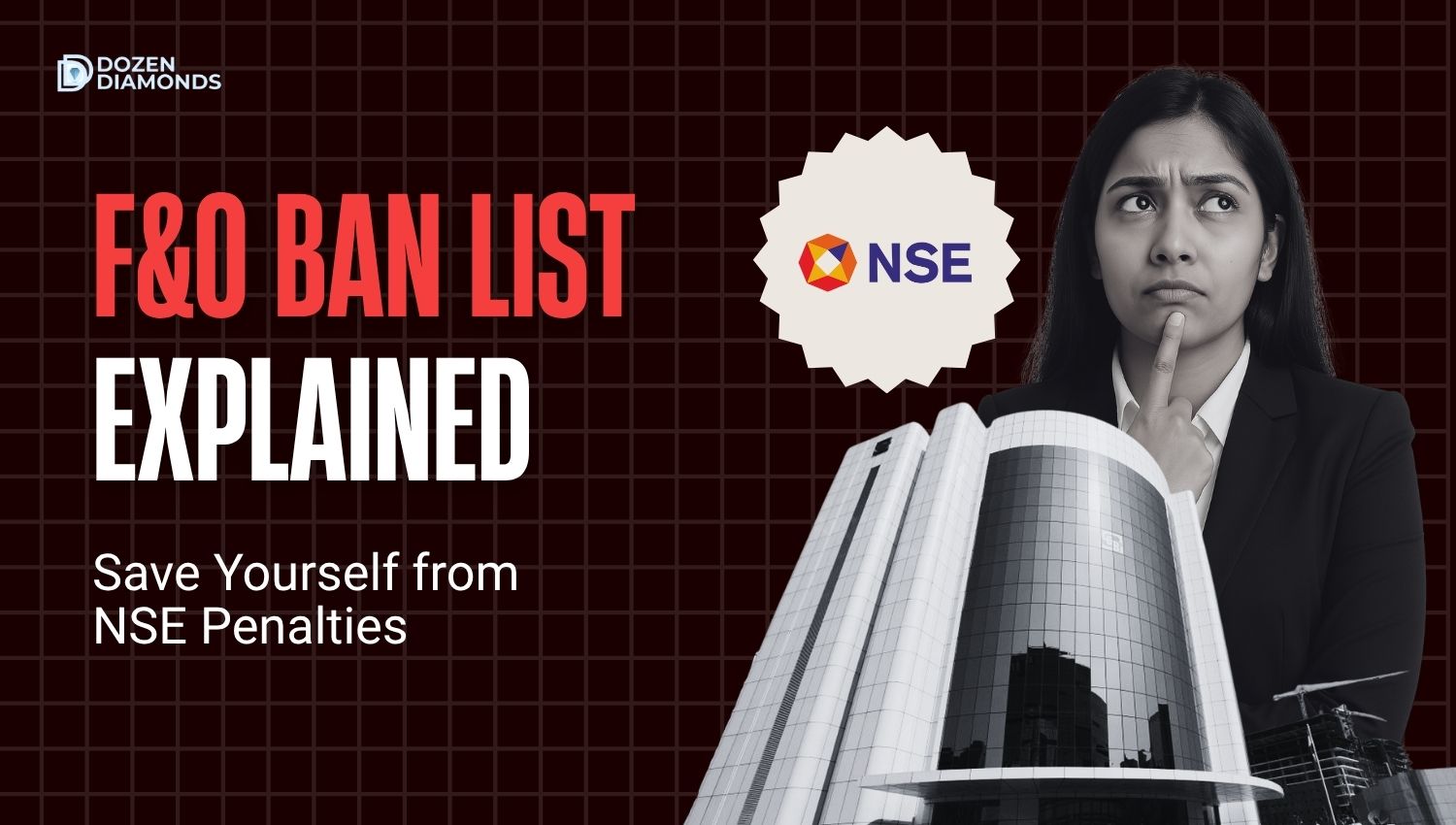F&O Ban List Explained: Save Yourself from NSE Penalties

Table of Contents
Why F&O Ban Lists Matter Now
By the end of this post, you’ll clearly understand how the F&O ban list affects your trades—and how to avoid the biggest risks retail investors face daily in India.
According to The Financial Express (quoting a SEBI study), nearly 93% of individual F&O traders incurred losses between FY22 and FY24, while 99.8% of F&O traders were retail investors, contributing only around 30% to total volume
Source: The Financial Express
- Avoid penalties by understanding how bans work
- Learn proactive steps to trade smarter
- Get introduced to automation systems like STM that help dodge these traps
Benefits of Reading This Post
You’ll walk away with:
- A working knowledge of how the F&O ban list works in India
- Tools to pre-screen stocks likely to be banned
- An introduction to automation systems like STM that bypass such errors
What Is the F&O Ban List?
The F&O ban list is issued daily by NSE. It restricts F&O trading in specific stocks that cross 95% of their market-wide position limits (MWPL).
New F&O contracts in these stocks are disallowed until volumes drop below the safe limit again. If you open new trades in these contracts, you could face regulatory penalties.
Why Stocks Enter the Ban List
Common reasons include:
- Over-leveraging by retail traders
- Sudden spikes in speculative demand
- Rumors or news-based trading
- Algorithmic manipulation or crowd psychology
The Retail Trader’s Dilemma
- No fresh trades in banned scripts
- Increased volatility in current positions
- Forced exits at unfavourable prices
A Regulatory Perspective from SEBI and NSE
Critics say it restricts freedom—but it protects small investors from spiraling losses.
Every trader should check the ban list daily before placing trades.
How Automation Like STM Helps
Dozen Diamonds’ Stressless Trading Method (STM) avoids F&O ban traps with:
- Trading only in stocks, not F&O contracts.
- Using its rule-based strategy to react to market movements.
- Pre-set guardrails that mimic institutional discipline.
STM uses its strategy to recognize signs of speculation and reacts to them automatically.
Real-World Examples: ZEEL & Adani
In early 2025, ZEEL, BHEL, and PNB hit the F&O ban list multiple times.
Retail traders following social media tips got stuck with:- Frozen orders
- Sudden margin calls
- Zero exit options during peak volatility
The Stressless Trading Method users, on the other hand, were automatically steered clear of these counters.
Staying Ahead of the F&O Ban List
Key steps:
- 1. Bookmark the daily NSE F & O ban list.
- 2. Avoid trades in stocks nearing 95% MWPL.
- 3. Use tools like Zerodha’s Open Interest heatmaps.
- 4. Rely on risk-controlled algo systems like The Stressless Trading Method by Dozen Diamonds
- 5. Never follow crowd trades blindly.
A Cultural Shift in Trading
- Reactive or proactive
- Stressless-based or system-driven
- Risky or risk-managed
The Future of Retail Trading in India
What’s coming in 2025:
- Voice-command trade tools
- AI-predictive flags before stocks hit ban list
The Stressless Trading Method continues to evolve with this landscape, empowering retail investors with Kosh App – a stressless trading platform facilitating stressless investing.
Final Thoughts and Next Step
The F&O ban list can either be a red flag or a roadmap — depending on your approach.
Next Step: Download the Kosh App and experience stressless trading without worrying about the F & O ban list.
❓ FAQs on F&O ban list
It’s a daily NSE list of stocks that have crossed 95% of their trading limit — meaning no new F&O positions can be opened until volumes drop.
Mostly due to heavy speculation, sudden demand spikes, or crowd-driven trading — often triggered by social media or rumors.
You could face penalties, forced exits, or frozen positions — especially during high volatility.
STM avoids F&O entirely, using disciplined, stock-only strategies that automatically steer you clear of risky banned scripts.
Check NSE’s ban list daily or trade through automated systems like STM on the Kosh App, which proactively avoids such traps.
